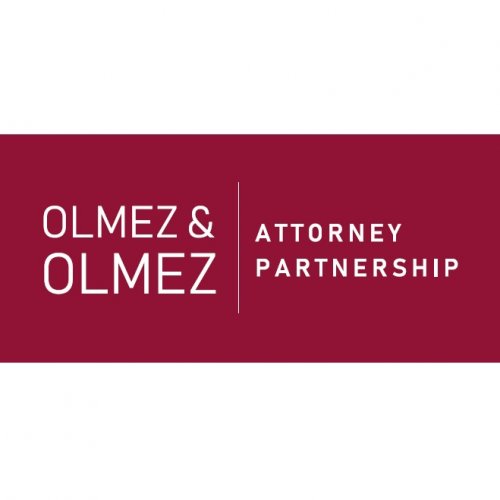Best Collaborative Law Lawyers in Kartal
Share your needs with us, get contacted by law firms.
Free. Takes 2 min.
Free Guide to Hiring a Family Lawyer
List of the best lawyers in Kartal, Turkey
About Collaborative Law in Kartal, Turkey
Collaborative Law in Kartal, Turkey, is an alternative legal process designed for parties who prefer to resolve disputes amicably without going to court. This approach is often used in family law cases such as divorce or custody disputes, but it is also applicable in business and civil matters. Collaborative Law emphasizes cooperation and negotiation, with both parties represented by specially trained lawyers committed to finding mutually beneficial solutions. The goal is to minimize conflict and promote a respectful discourse, ultimately resulting in a legally binding agreement that meets the needs of all involved parties.
Why You May Need a Lawyer
There are several scenarios where the expertise of a lawyer experienced in Collaborative Law might be crucial:
- When facing a divorce and wishing to avoid a contentious courtroom battle, a Collaborative Law lawyer can help reach a peaceful settlement on complex matters such as asset division and child custody.
- For business partners who need to resolve disputes or renegotiate terms without damaging their working relationship, a lawyer can facilitate a productive, non-adversarial dialogue.
- Parents looking to create a co-parenting plan post-separation can benefit from a collaborative approach to address their children's needs while fostering cooperation and communication.
Local Laws Overview
In Kartal, and more broadly in Turkey, the legal framework supports Alternative Dispute Resolution (ADR) methods, including Collaborative Law. While not as widely embedded in the legal system as in some other countries, the principles align well with Turkish cultural values emphasizing family and community. Parties entering a collaborative process must sign a agreement that commits them to the process of mutual respect and open and honest communication. The local Bar Associations may offer training and certification for lawyers who wish to practice Collaborative Law, ensuring they uphold the highest professional and ethical standards.
Frequently Asked Questions
What is the main difference between Collaborative Law and mediation?
While both Collaborative Law and mediation focus on negotiation, Collaborative Law involves each party having their own lawyer trained in the collaborative process. Mediation typically involves a neutral third-party mediator without offering legal representation.
Do I have to go to court when using Collaborative Law?
No, one of the main advantages of Collaborative Law is its focus on resolving disputes outside of court, thereby saving time and potentially reducing costs.
What happens if we don't reach an agreement?
If the parties cannot reach an agreement, the collaborative process concludes, and the case may proceed to court. Lawyers in the collaborative process cannot represent their clients in court proceedings thereafter.
Are the discussions held in Collaborative Law confidential?
Yes, confidentiality is a key component, enabling open and honest communication. Any information disclosed during the process cannot be used in future legal proceedings if the process fails.
How long does a Collaborative Law process typically take?
The duration can vary greatly depending on the case complexity and the willingness of parties to cooperate. However, it is generally faster than litigation.
Can Collaborative Law be used in cases other than divorce?
Yes, it can be used in various civil disputes, business conflicts, and family matters beyond divorce.
What qualifications should I look for in a Collaborative Law lawyer?
Look for a lawyer trained in Collaborative Law, preferably with experience in the specific type of dispute you're facing. Membership in local or international collaborative law organizations can also be a good indicator of their expertise.
How is the collaborative process started?
Both parties need to agree to the collaborative process and engage lawyers trained in Collaborative Law to facilitate negotiations.
Will Collaborative Law save me money?
Potentially, because it avoids the high costs of court fees and lengthy litigation, although lawyer fees will still apply.
Is Collaborative Law legally binding?
Yes, once an agreement is reached, it is put into a formal document that can be submitted to a court for approval, making it legally binding.
Additional Resources
Individuals seeking guidance in Collaborative Law in Kartal can refer to the local Bar Association, which may provide directories of qualified lawyers and offer resources for understanding their rights and responsibilities. Organizations such as the Institute for Collaborative Law and related legal bodies also provide educational materials and support networks.
Next Steps
If you are considering Collaborative Law, your first step should be to consult with a lawyer experienced in this field. They can assess your situation and guide you through the process. Ensure the lawyer understands your specific needs and is committed to a collaborative approach. It’s also worthwhile to prepare by gathering any relevant documentation and clearly articulating your goals and priorities for the resolution of your case.
Lawzana helps you find the best lawyers and law firms in Kartal through a curated and pre-screened list of qualified legal professionals. Our platform offers rankings and detailed profiles of attorneys and law firms, allowing you to compare based on practice areas, including Collaborative Law, experience, and client feedback.
Each profile includes a description of the firm's areas of practice, client reviews, team members and partners, year of establishment, spoken languages, office locations, contact information, social media presence, and any published articles or resources. Most firms on our platform speak English and are experienced in both local and international legal matters.
Get a quote from top-rated law firms in Kartal, Turkey — quickly, securely, and without unnecessary hassle.
Disclaimer:
The information provided on this page is for general informational purposes only and does not constitute legal advice. While we strive to ensure the accuracy and relevance of the content, legal information may change over time, and interpretations of the law can vary. You should always consult with a qualified legal professional for advice specific to your situation.
We disclaim all liability for actions taken or not taken based on the content of this page. If you believe any information is incorrect or outdated, please contact us, and we will review and update it where appropriate.










